Announcement Joker 2015 University Day: Celebration on student street
Students of Java, teachers and all who sympathize with them!
On Sunday, October 18, in St. Petersburg, we will hold a Joker 2015 University Day - an event for students in the framework of the "big" Joker. University Day is:
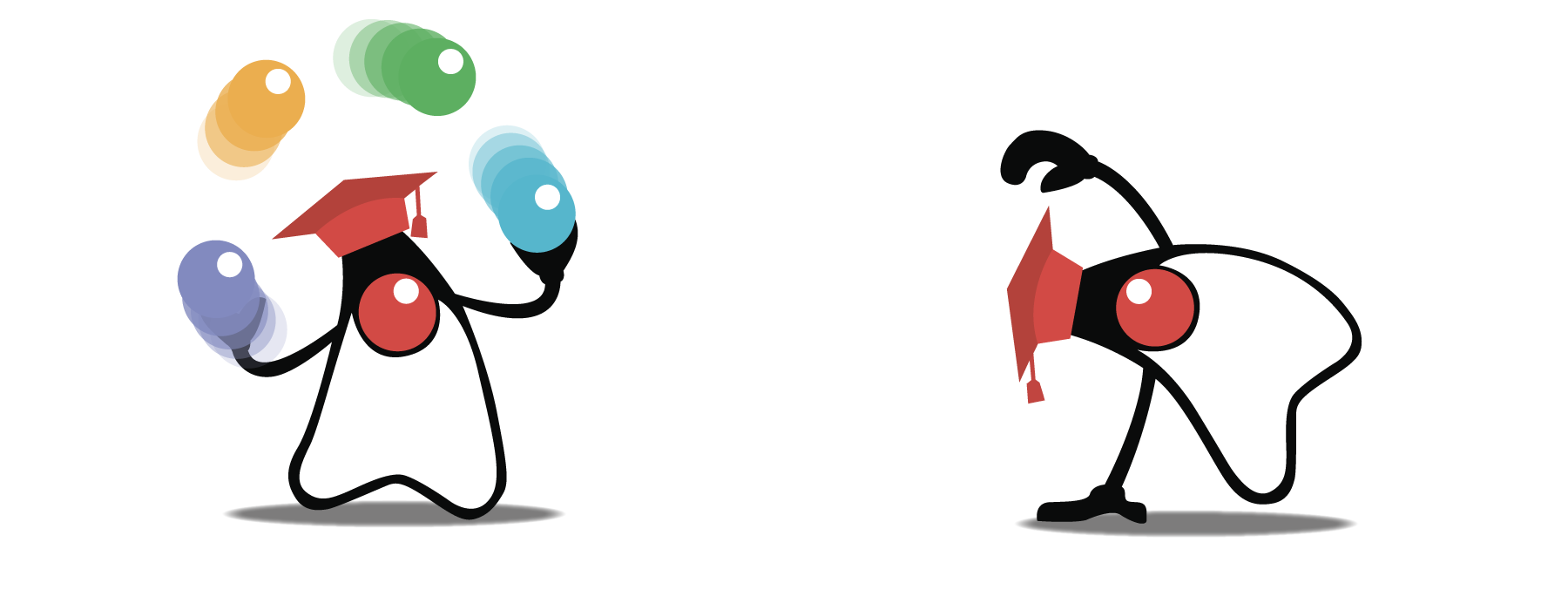
')
On this occasion, we call
Conference site: http://university.jokerconf.com/
So, this year for the first time we decided to please not only Middle / Senior developers with conferences, as we used to, but also to do something for students and juniors. Since we are not able to do anything other than conferences, the conference was again.
The idea to start doing something for St. Petersburg students was with us a long time ago, and real_ales in June of this year offered to issue this “something” in the form of a one-day conference.
Differences University Day from a big Joker
The differences are as follows:
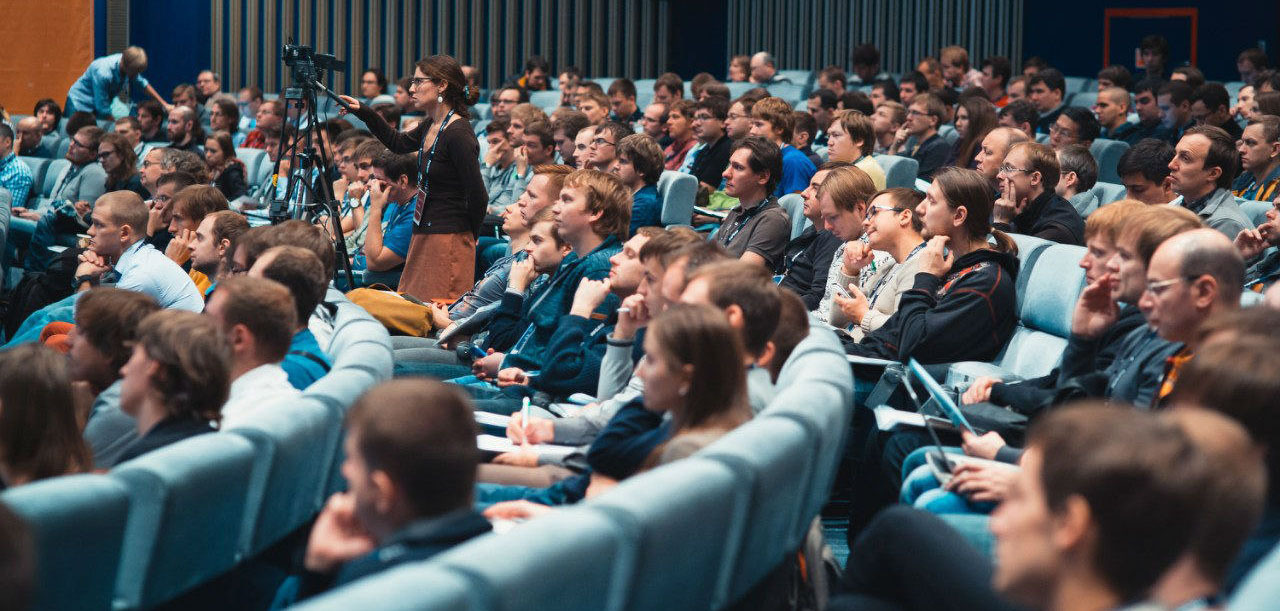
Age limit
Many will be upset, but we will not let anyone get 25 years or more on the day of the conference . The big guys are the big joker . Nothing personal.
Reports
At the moment we announced 6 reports from 12. Here they are:

Alexey Shipilev , Java Performance Engineer from Oracle, will talk about the performance optimization methodology. The main approaches to optimizing program performance, including general ideas, metrics, basic laws and relations, typical workflows and underwater rakes will be highlighted.
The report is a concise and updated version of the three-hour report “Methodology of performance optimization”, read in 2011-2012.

Oleg Anastasyev , Lead Engineer from Odnoklassniki, will talk about the technologies used in Odnoklassniki, about the general architecture of the site and the principles of its design, about the difficulties that usually occur when building such large-scale systems.
Oleg will also talk about how the programming of Odnoklassniki differs from that adopted in the “bloody enterprise”. Will consider the strengths and weaknesses of Java from the point of view of the developer of a loaded system. And of course, some of the tricks that they and their colleagues use in connection with this will be revealed.
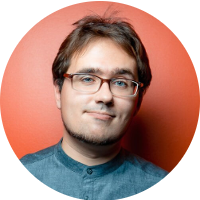
Alexey Zinoviev, aka zaleslaw , EPAM's Java trainer and specialist in large graphs, will tell you how Java helps mathematicians. At this report, students will be able to pass the introductory course of the BigData fighter:
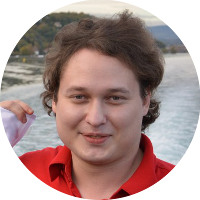
Evgeny Mandrikov , sonarSource Language Team technical team, will talk about what “code quality” is and about tools like SonarQube that help you to continuously analyze your code.
Eugene has behind him about 11 years of experience developing various Java applications. And he occupies the position of technical leader of the SonarSource Language Team, working on analyzers of programs written in Java, C / C ++, C #, JavaScript, COBOL. In his free time he is engaged in the support and development of various open-source projects, such as EclEmma, JaCoCo and Maven. So, believe me, he knows something about analysis tools!
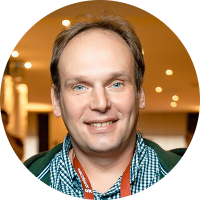
Nikita Lipsky aka pjBooms , one of the initiators and leaders of the Excelsior JET project, a certified Java SE implementation, will talk about the internal structure of the Java Virtual Machine (JVM).
The internal structure of the JVM is not easy, but if you decide to link your professional career with Java, it is very important to understand what parts the JVM consists of, what part is responsible for what and how it all works together at least in very general terms: this will help you in understanding how your java program works.
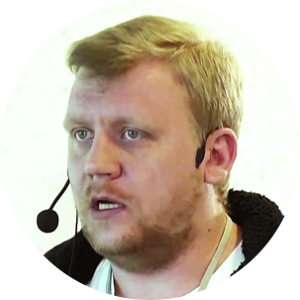
Victor Polishchuk , Java-techlide company Infopulse , tells about why he likes to work with legacy-projects, that is, with projects that have a lot of old code.
The report will focus on legacy projects and what opportunities they open up to you, like to specialists. Victor will tell you how to keep up with technology, how to become super-expert, to do what you want, and not what you are asked. It will be shown how, with the right approach to the legacy code, you can constantly improve and benefit the project.
I will note once again that these are only six of the twelve planned technical reports. Clarity with the other six comes in the next 2 weeks.
As you can see, the reports are completely different: from technical meat about Highload, Performance and the JVM device to the philosophical aspects of working on legacy projects. Java world in all its diversity.
Online
Residents of other cities - do not worry! Although the online broadcast, most likely, * will not be *, all reports will be recorded, a couple of weeks after the conference posted on YouTube, after which we will certainly publish them on Habré along with a report on the last event.

If among my readers there are teachers of universities of St. Petersburg - please, write to me in the mail . You will help me with the dissemination of information about the university day among students, and I will give you all the nishtyaki for it!
This is all about University Day. Again:
Traditionally, the conference team and we will answer all your questions in the comments. See you at Joker 2015 University Day!
On Sunday, October 18, in St. Petersburg, we will hold a Joker 2015 University Day - an event for students in the framework of the "big" Joker. University Day is:
- 12 reports from world-class Java experts, with each of which you can communicate in person;
- stands of leading St. Petersburg and Moscow Java-employers . There you can learn about internships, vacancies for Juniors, Java schools and more generally about these companies;
- the opportunity to look at what a professional industry conference ;
- to discuss with “colleagues in misfortune” from other universities, what and how they experience learning programming in general and Java technology in particular.

')
On this occasion, we call
- all students - come, come, sail and fly to us;
- all teachers - tell your students about our wonderful event in pairs;
- All older brothers, fathers, and uncles of novice Java programmers — give your younger brother, son, or nephew a link to this article. Let him read and join the beautiful!
Conference site: http://university.jokerconf.com/
So, this year for the first time we decided to please not only Middle / Senior developers with conferences, as we used to, but also to do something for students and juniors. Since we are not able to do anything other than conferences, the conference was again.
The idea to start doing something for St. Petersburg students was with us a long time ago, and real_ales in June of this year offered to issue this “something” in the form of a one-day conference.
Differences University Day from a big Joker
The differences are as follows:
- The topics are a bit simpler. Not all Middle / Senior fully understand the content of some reports, especially when there are a lot of JVM viscera, Spring guts, etc in the reports;
- the task is not to teach or help to understand a specific solution, but rather to show the diversity of the Java-world so that students understand whether it is worth continuing to move towards improving themselves as a Java programmer;
- there will be a section-presentation of employers, where they will tell about their activities, as well as about their career opportunities for internship students, vacancies for juniors, etc.

Age limit
Many will be upset, but we will not let anyone get 25 years or more on the day of the conference . The big guys are the big joker . Nothing personal.
Reports
At the moment we announced 6 reports from 12. Here they are:

Alexey Shipilev , Java Performance Engineer from Oracle, will talk about the performance optimization methodology. The main approaches to optimizing program performance, including general ideas, metrics, basic laws and relations, typical workflows and underwater rakes will be highlighted.
The report is a concise and updated version of the three-hour report “Methodology of performance optimization”, read in 2011-2012.

Oleg Anastasyev , Lead Engineer from Odnoklassniki, will talk about the technologies used in Odnoklassniki, about the general architecture of the site and the principles of its design, about the difficulties that usually occur when building such large-scale systems.
Oleg will also talk about how the programming of Odnoklassniki differs from that adopted in the “bloody enterprise”. Will consider the strengths and weaknesses of Java from the point of view of the developer of a loaded system. And of course, some of the tricks that they and their colleagues use in connection with this will be revealed.

Alexey Zinoviev, aka zaleslaw , EPAM's Java trainer and specialist in large graphs, will tell you how Java helps mathematicians. At this report, students will be able to pass the introductory course of the BigData fighter:
- understand how the MapReduce algorithm works;
- Understand how to write MR jobs in Java and execute them in the Hadoop cluster;
- see the differences between Hadoop and Spark in the approach to data processing;
- understand how the architecture of a typical DataMining application in Java / Scala looks like;
- get acquainted with the differences in approaches to processing graphs and JSON-like data;
- compare different query languages based on the Hadoop infrastructure.

Evgeny Mandrikov , sonarSource Language Team technical team, will talk about what “code quality” is and about tools like SonarQube that help you to continuously analyze your code.
Eugene has behind him about 11 years of experience developing various Java applications. And he occupies the position of technical leader of the SonarSource Language Team, working on analyzers of programs written in Java, C / C ++, C #, JavaScript, COBOL. In his free time he is engaged in the support and development of various open-source projects, such as EclEmma, JaCoCo and Maven. So, believe me, he knows something about analysis tools!

Nikita Lipsky aka pjBooms , one of the initiators and leaders of the Excelsior JET project, a certified Java SE implementation, will talk about the internal structure of the Java Virtual Machine (JVM).
The internal structure of the JVM is not easy, but if you decide to link your professional career with Java, it is very important to understand what parts the JVM consists of, what part is responsible for what and how it all works together at least in very general terms: this will help you in understanding how your java program works.

Victor Polishchuk , Java-techlide company Infopulse , tells about why he likes to work with legacy-projects, that is, with projects that have a lot of old code.
The report will focus on legacy projects and what opportunities they open up to you, like to specialists. Victor will tell you how to keep up with technology, how to become super-expert, to do what you want, and not what you are asked. It will be shown how, with the right approach to the legacy code, you can constantly improve and benefit the project.
I will note once again that these are only six of the twelve planned technical reports. Clarity with the other six comes in the next 2 weeks.
As you can see, the reports are completely different: from technical meat about Highload, Performance and the JVM device to the philosophical aspects of working on legacy projects. Java world in all its diversity.
Online
Residents of other cities - do not worry! Although the online broadcast, most likely, * will not be *, all reports will be recorded, a couple of weeks after the conference posted on YouTube, after which we will certainly publish them on Habré along with a report on the last event.

If among my readers there are teachers of universities of St. Petersburg - please, write to me in the mail . You will help me with the dissemination of information about the university day among students, and I will give you all the nishtyaki for it!
This is all about University Day. Again:
- Peter, October 18
- Conference site: http://university.jokerconf.com/
Traditionally, the conference team and we will answer all your questions in the comments. See you at Joker 2015 University Day!
Source: https://habr.com/ru/post/261547/
All Articles